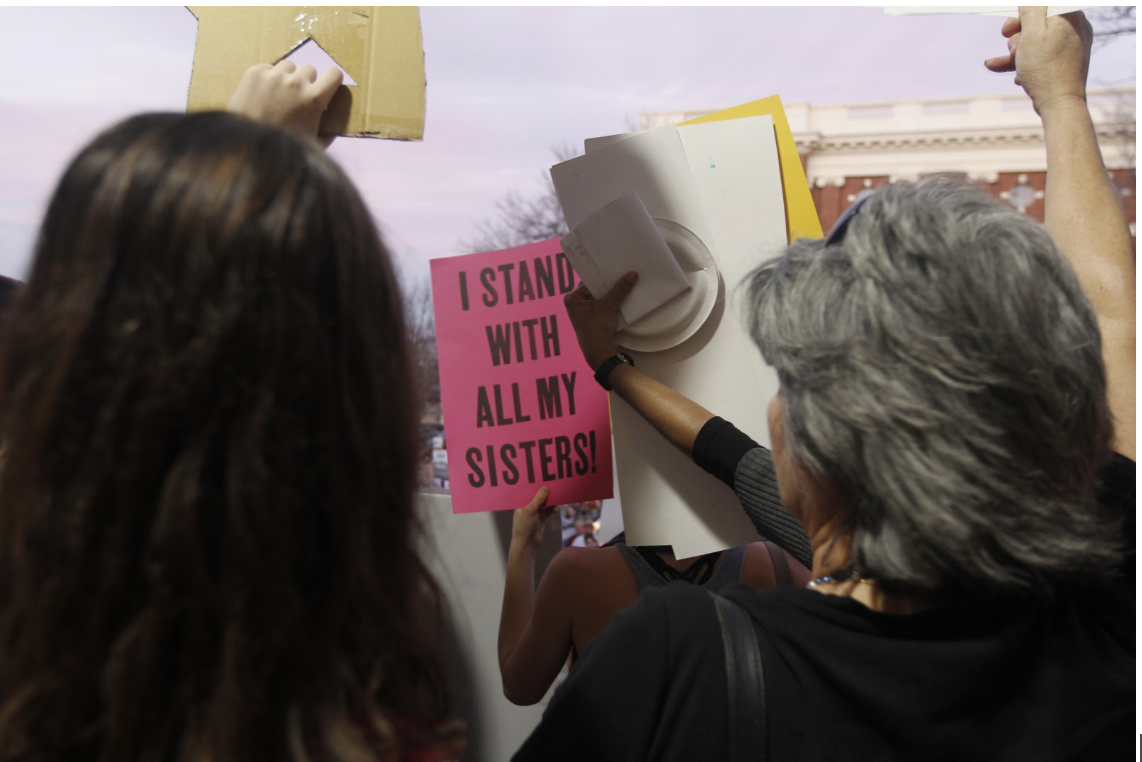
Athens, the odd one out
For many women in Northeast Georgia, Athens is the political exception, not the rule.
On Election Day, Clarke County was once again Northeast Georgia’s blue island in a sea of red counties. Two months later, women came in droves to the Classic Center on January 21 to participate in a Women’s March–one of hundreds that took place across the United States that day. However, many women in surrounding counties, particularly the rural ones–Oconee, Oglethorpe and Madison, didn’t share the same sentiments.
President Trump had the majority vote in Clarke’s neighboring counties, first in the Republican primaries and in the General Election. These counties, all majority white, contain some of the 50 percent of white women who voted for Trump. Because of this, it is less surprising that Women’s Marches were less visible in these counties.
“I know they have good intentions,” said Cathy Ware, Chairman of the Oglethorpe GOP but she feels the march was more about the Presidential Election than fighting against discrimination.
On the other hand, women in Clarke County largely supported the Women’s March in Athens and elsewhere, including Christine Phillips, a second year international affairs student at the University of Georgia.

“We care about people in this country, we care about people in this world, and their rights, and I think that the women’s march showed that with having millions people mobilized for this cause,” said Phillips.
Other related marches included women issues as part of their list of grievances. The Day of Resistance March, a march that protested positions that President Trump held on his campaign trail, occurred in Downtown Athens on January 20. A video by The Red and Black shows why protesters marched.
For Ariana Parsa, a third year biochemistry and molecular biology major at the UGA, the equality of men and women is an important issue that led her to attend the Day of Resistance March in Athens.
“I feel a direct personal stake in [women’s issues]. It should not take having a mother or a sister to make you speak out for the equality of genders,” said Parsa.

But many women disagree on how to define women’s issues. According to a Pew Research Center poll from 2016, 40% of women believe abortion should be illegal in all or most cases. Divides like this creates friction, leaving more conservative women to feel excluded from the women’s movement.
“Abortion is not the issue of the moment. It is legal, what is there to protest about?” said Ware who believes there are other topics that liberal and conservative women could rally around.
The question that comes to mind is, what causes this divide? Both Clarke and Oglethorpe’s rate of people in poverty and bachelor-educated populations are respectively equal, but the difference is the presence of college students in Clarke County. Although many college students vote in Athens-Clarke County, they are not permanent residents and are not included in Census data.
Demographics by County:

Other counties lack the younger, more diverse, liberal community and instead have an older, more white, conservative community. Marches like the ones that occurred in Athens do not always represent the views of surrounding rural counties.
“Domestic violence has to be one of the hardest things to deal with,” said Ware. She sees violence against women as an important issue that applies to all women–rural and urban.
According to the National Coalition Against Domestic Violence, Georgia is 9th in the US for women killed by men. Ware sees abortion as a distraction from self-defense training for women and empowering women to speak out when they experience violence.
Parsa believes that the Women’s Marches are for everyone–even those who don’t feel represented.
“This is bigger than you. These organized, peaceful marches are not doing anything to hurt you. They are about fundamental human rights. We march for you, even if you refuse to understand the point,” said Parsa.
Many women Trump supporters disagree with Parsa’s sentiment:

Yet, Parsa still believes that conservative and liberal women can come together.
“Feminism is not just about one group of women. However, it is about all of us. And we won’t succeed in our fight for equality unless we can all join together,” said Parsa.
By: Jalen Gregory, Grace Holland, Reann Huber and Kalah Mingo
Also see: https://medium.com/@kalah.mingo/athens-the-odd-one-out-e5306067e135#.dsb6fdjdx